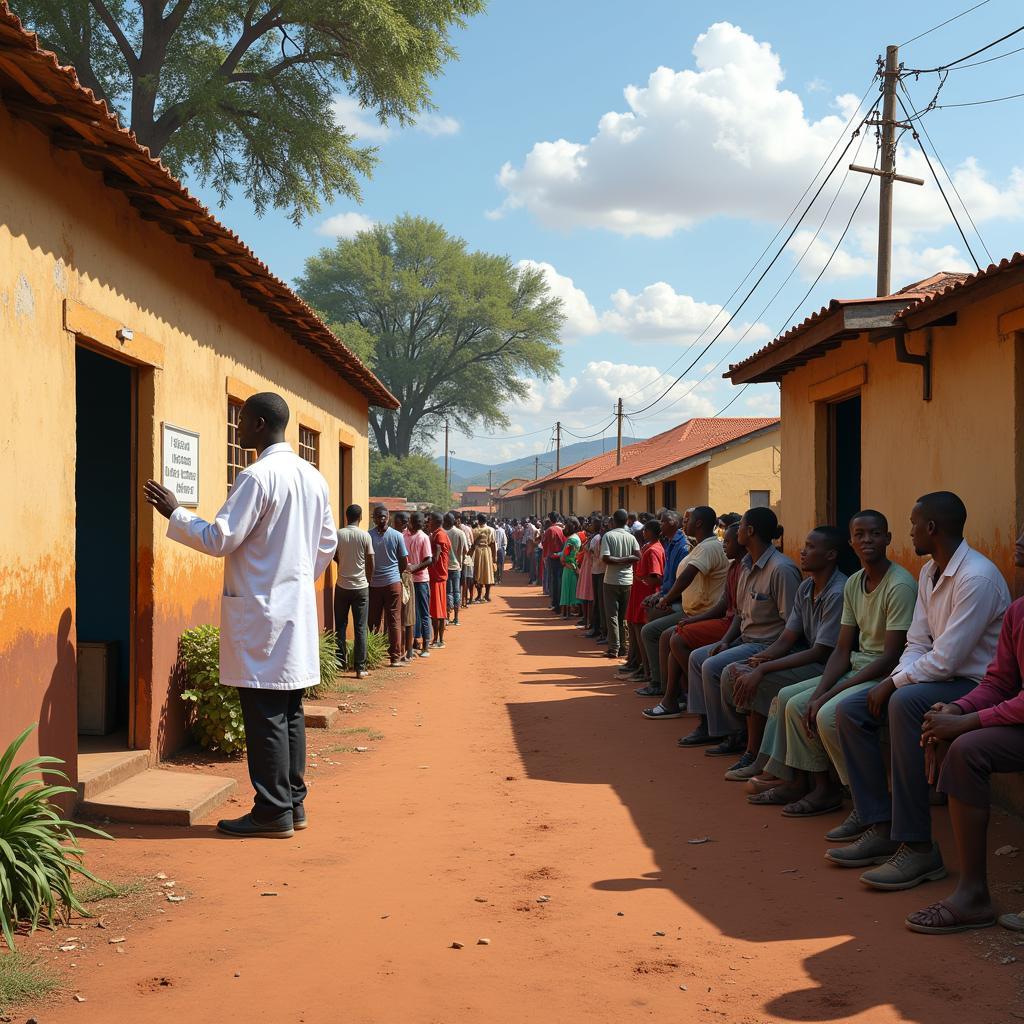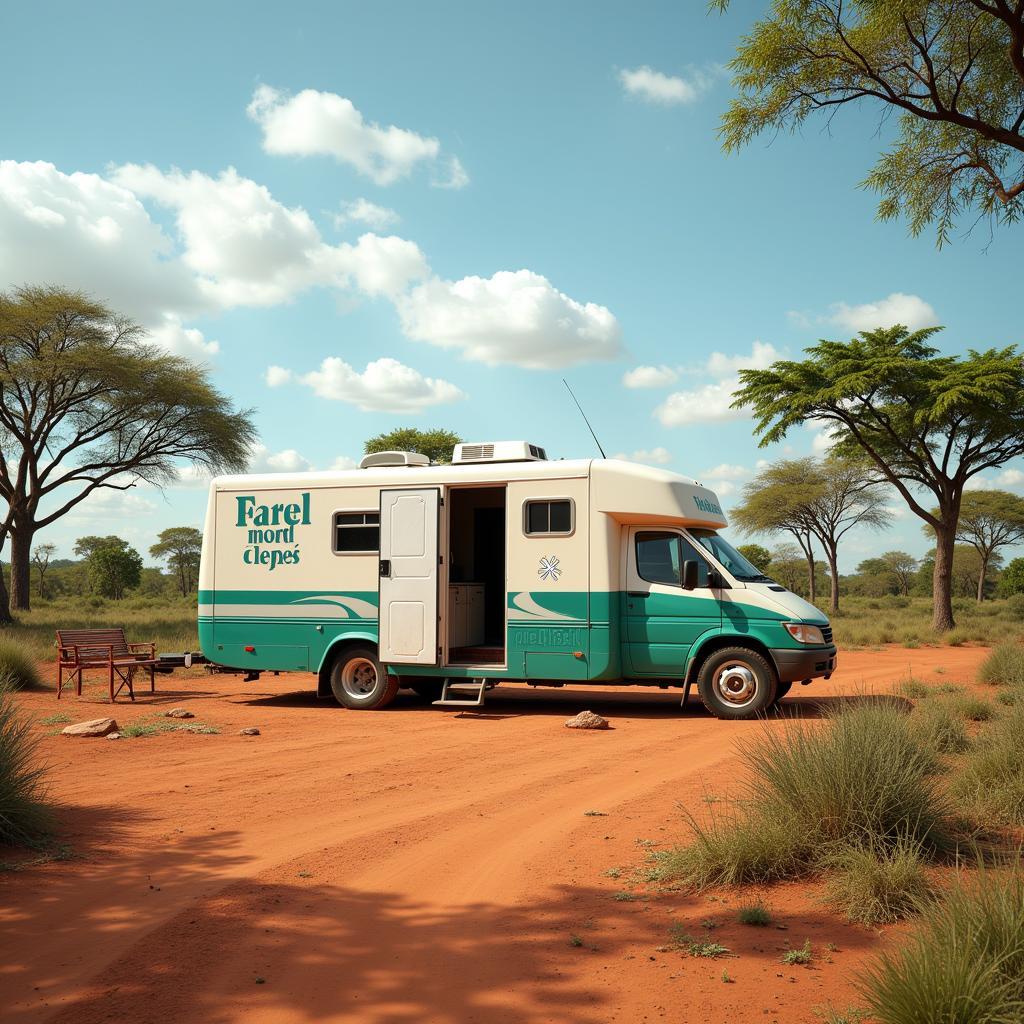African Countries That Need Doctors
The need for doctors in many African countries is a pressing issue. This article explores the complexities of this challenge, highlighting some of the African Countries That Need Doctors and examining the factors contributing to this critical shortage.
Healthcare systems across the African continent face significant challenges, and the shortage of qualified medical professionals, particularly doctors, is a major concern. This scarcity impacts access to quality healthcare, particularly in rural and underserved communities. Understanding the factors contributing to this shortage is crucial for developing effective solutions. One factor contributing to the doctor shortage is the “brain drain” phenomenon, where trained professionals leave their home countries for better opportunities elsewhere. Another challenge is the limited capacity of medical training institutions in some regions. See more on African dev.
Understanding the Doctor Shortage in Africa
Several factors contribute to the shortage of doctors in African countries. These include limited resources for medical education, inadequate infrastructure and equipment in healthcare facilities, and competitive salaries offered by developed nations, leading to a significant “brain drain.” Political instability and conflict in certain regions can also disrupt healthcare systems and displace medical professionals. Moreover, the distribution of doctors within countries is often uneven, with urban areas attracting more professionals than rural areas, exacerbating the healthcare access gap. What can be done to address this complex issue? Investing in medical education and training within Africa is essential.
 Doctor Shortage in Rural Africa
Doctor Shortage in Rural Africa
Which African Countries Need Doctors Most?
While the need is widespread across the continent, some countries face more acute shortages than others. Countries like Malawi, Ethiopia, and Mozambique have doctor-to-patient ratios far below the World Health Organization’s recommended minimum. These countries often struggle to attract and retain medical professionals due to limited resources and challenging working conditions. However, it is also important to note the varying needs within each country. For example, even within countries with relatively higher numbers of doctors, rural and remote areas often lack access to essential medical services. Find more information about African professionals at African in Memorial University.
Focusing on Specific Needs
Addressing the doctor shortage requires a multi-pronged approach. Improving medical training infrastructure, offering competitive salaries, and creating incentives for doctors to practice in underserved areas are vital steps. International partnerships and collaborations can also play a significant role in supporting local initiatives and capacity building. Another crucial aspect is promoting community health worker programs to alleviate the burden on doctors and improve access to basic healthcare services in remote communities. How can we support these vital initiatives?
The Role of International Aid and Collaboration
International aid organizations and partnerships play a crucial role in supporting African countries in addressing the doctor shortage. These collaborations focus on providing resources for medical training, infrastructure development, and capacity building within local healthcare systems. Organizations like the World Health Organization and various NGOs are actively involved in these efforts. Learn more about African doctors via African doctors details. This support is essential for strengthening healthcare systems and improving access to quality medical care across the continent. What are some successful examples of these collaborations?
Dr. Aboubakar Soumahoro, a renowned public health expert from Côte d’Ivoire, states, “Investing in local medical training and creating sustainable healthcare systems are key to tackling the doctor shortage in Africa. We need to empower local communities and build long-term solutions.” His words emphasize the importance of sustainable initiatives and local empowerment.
 Mobile Medical Clinic in Remote Village
Mobile Medical Clinic in Remote Village
Conclusion
The shortage of doctors in African countries is a complex issue with far-reaching consequences. Addressing this challenge requires collaborative efforts, including investments in medical education, improved infrastructure, and incentives for medical professionals to serve in underserved areas. By working together, we can strengthen healthcare systems and ensure access to quality medical care for all. The continued support of international organizations and the dedication of healthcare professionals are crucial to achieving this vital goal. Explore more resources on African doctors association.
FAQ
- What are the main reasons for the doctor shortage in Africa? Limited resources, brain drain, and uneven distribution of doctors are key factors.
- Which countries are most affected by the doctor shortage? Countries like Malawi, Ethiopia, and Mozambique face particularly acute shortages.
- How can international aid help address this issue? International aid supports medical training, infrastructure development, and capacity building.
- What role do community health workers play? They provide basic healthcare in remote areas, alleviating the burden on doctors.
- How can I contribute to solving this problem? Supporting organizations working to improve healthcare in Africa is a valuable contribution. Check out resources related to young Africans at African teen.
Common Scenarios
- A rural clinic in Malawi struggles to provide adequate care due to a lack of doctors.
- A young medical graduate from Ethiopia considers leaving the country for better opportunities abroad.
- An international aid organization partners with a local university to train healthcare professionals.
Other Resources
- Explore articles on healthcare disparities in Africa.
- Find information about volunteer opportunities in African healthcare settings.
Khi cần hỗ trợ hãy liên hệ Số Điện Thoại: +255768904061, Email: kaka.mag@gmail.com Hoặc đến địa chỉ: Mbarali DC Mawindi, Kangaga, Tanzania. Chúng tôi có đội ngũ chăm sóc khách hàng 24/7.


